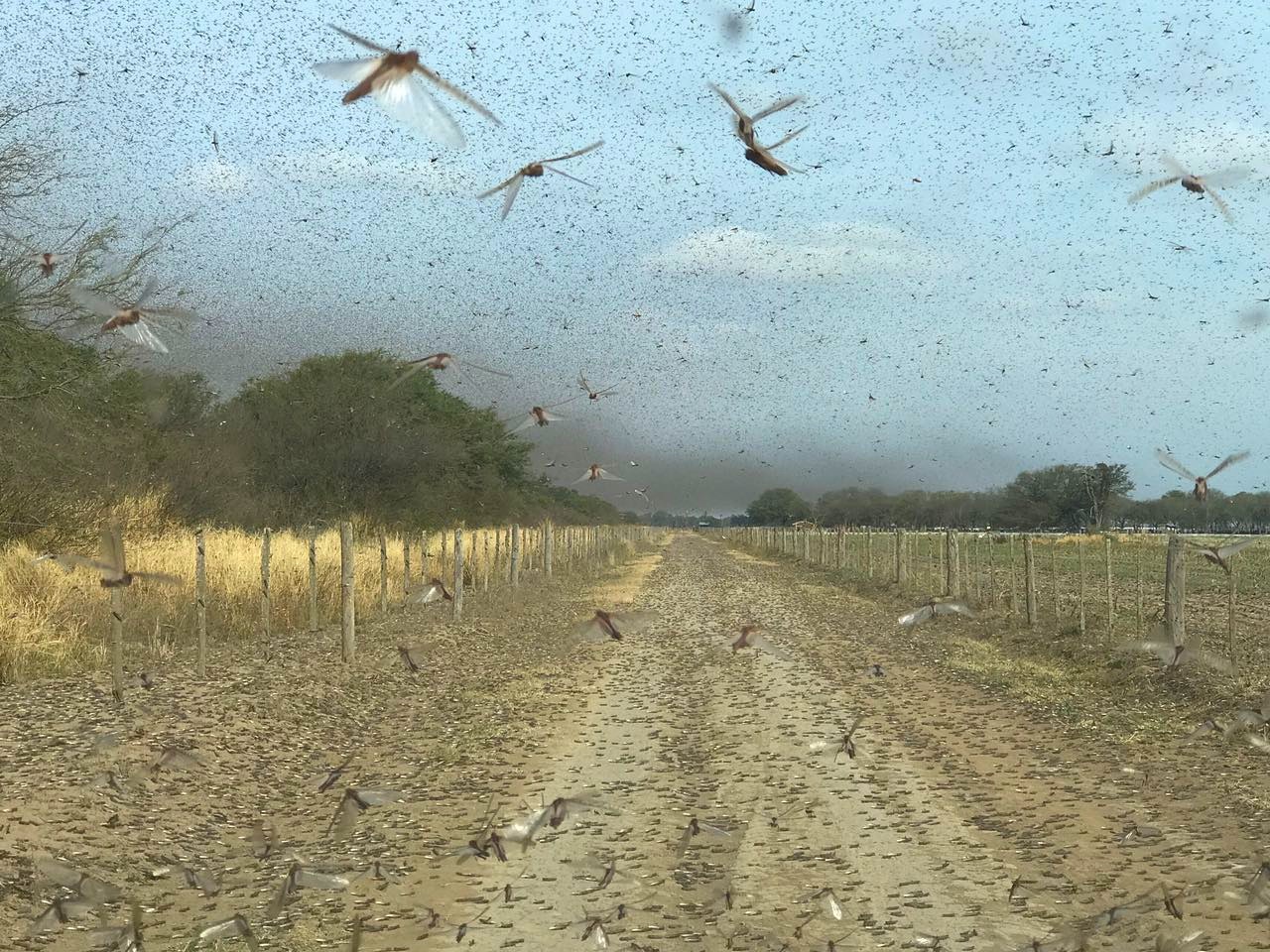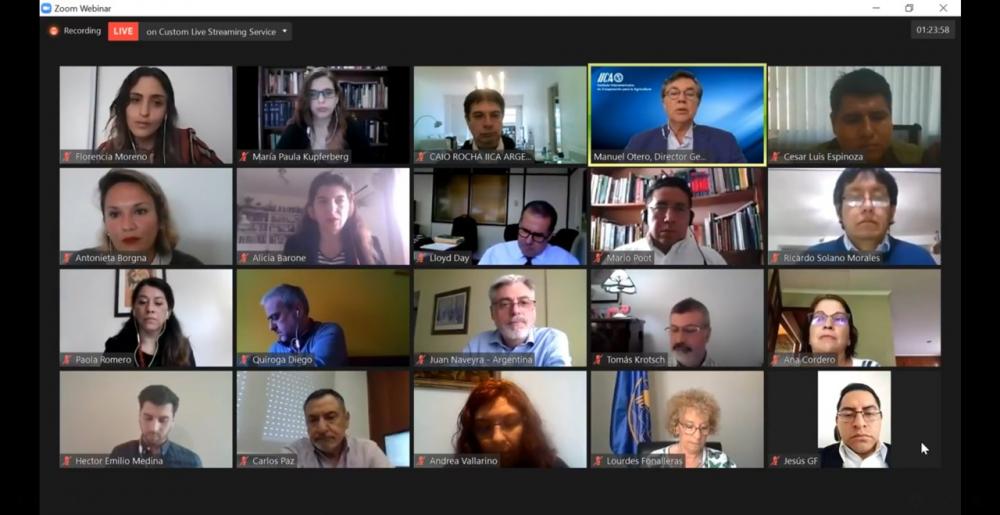Representatives of more than 30 countries participated in the II Regional Cooperation Seminar for Latin America and the Caribbean. In November, a discussion forum for Latin America, the Caribbean and Africa will focus on locust prevention and control strategies.

Buenos Aires, Argentina, 27 October 2020 (IICA). The resurgence of locusts in recent years poses a threat to regional agricultural production, natural reserves and food security. Therefore, it is critical that various countries develop joint strategies to tackle the problem.
This was the consensus among specialists at the II Regional Cooperation Seminar for Latin America and the Caribbean, entitled “Locusts: status and collaborative perspective”. The event, which was held virtually, brought together representatives of more than 30 countries.
Participants shared successful examples of transnational cooperation to control the plague, empasizing the pivotal role that technology and the use of bioinputs can play in prevention and control.
Reports were also presented, outlining the situation in each country and it was stressed that greater focus must be given to small producers and family farmers, who, given their vulnerability and lower resilience capacity, suffer a greater impact from the plague.
The activity was organized by Argentina’s Ministry of Foreign Affairs, International Trade and Religious Affairs; the Ministry of Agriculture, Livestock and Fisheries and the National Service of Agrifood Health and Quality (SENASA), in collaboration with the Inter-American Institute for Cooperation on Agriculture (IICA), the Inter-American Coordinating Group on Plant Protection (GICSV) and the Plant Protection Committee of the Southern Cone (COSAVE).
It was the second in a series of regional seminars on locust control in Latin America and the Caribbean, during a year designated by the United Nations as the International Year of Plant Health.
Minister Alicia Barone, who was representing the General Directorate of International Cooperation of Argentina’s Ministry of Foreign Affairs, remarked that the main aim of sharing experiences is to promote innovative solutions for pest control.
Director General of IICA, Manuel Otero, stressed the direct economic losses in food production and natural areas in rural territories, incurred as a result of the locusts. By way of example, he cited a recent IICA study that showed that Argentina’s northwest and northeast regions are the most likely to be affected by locusts, endangering 3.7 billion dollars of agricultural production per year, without even taking into account fruits, industrial crops, natural pastures or various forage crops used in livestock production.
He recalled that IICA’s collaboration with Member States to prevent and control the locusts had begun in the 1970s, with concrete initiatives, such as capacity strengthening and the incorporation of new technologies to deal with emergencies.
Otero highlighted international cooperation actions that are underway and announced that, as a follow-up to the hemispheric cooperation seminar, there would be a discussion forum in November on locust prevention and control strategies between Latin America, the Caribbean and Africa.
On the other hand, the President of SENASA, Carlos Paz, indicated that, after decades of absence, the rural sector in Argentina had seen a re-emergence of this plague since 2015.
“The former plague of the 40s and 50s transpired in another Argentina, in which many provinces were federal territories without the autonomy that they enjoy today and in which many producers were not as informed as those today. We are still feeling the environmental fall-out caused by the products used to fight locusts at that time”, said Paz, who stressed the many requests for information and training from Argentinian specialists, made by institutions in other countries in the region, through the Ministry of Foreign Affairs.

The SENASA President also highlighted the new challenges in pest and disease prevention and control, stemming from the expansion of Argentina’s agricultural frontier in recent years, often at the expense of native forests.
Diana Guillén, a representative of Argentina’s Ministry of Agriculture, Livestock and Fisheries, pointed out that the only way to address the locust problem is to take the approach already adopted by countries in the region: experience sharing and reciprocal assistance.
Guillén remarked that, “The pest does not recognize borders between countries, and moreover, producers cannot tackle the problem on their own. It requires State coordination and the help of technology”.
During a technical exchange session in the seminar, specialists from various countries and Regional Plant Protection Organizations (CAHFA, CAN, COSAVE, NAPPO and OIRSA) shared experiences of countries in the Southern, Andean, North American, Central American and Caribbean region, which had cooperated to identify and control the main threats caused by the pest.
The experts agreed on the need for coordinated strategies and efforts, as well as unified criteria to address the locust problem, given the voracious appetite of the pest, as well as its migratory patterns and movement across borders.
More information:
Lourdes Fonalleras, International Specialist in Agricultural Health and Food Safety, IICA.
lourdes.fonalleras@iica.int











